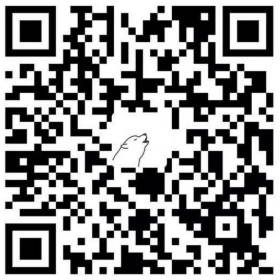英语语法-副词
时间副词
种类
1.确切时间:yesterday, today, now, tomorrow
2.不确切时间:already, recently, lately, before, soon, then, afterwards
3.副词短语:this morning, last night, in the morning, a week ago, three months ago,
at once, in a while, in recent days.
位置
确切时间副词:句首 or 句末(更常见)(祈使句只在句末)
Tomorrow I’m leaving for Beijing on a businiess tour.
I’m leaving for Beijing on a business tour a week ago.
Come to my office this afternoon.
不确切时间副词:句首 or 句中 or 句末
Very soon we’ll be there
We’ll very soon be there
I have been busy recently.
before, early, immediately, late 句末
Ihave never heard such a story before.
He came to school late.
总结:句末保险,句中的副词不多,祈使句只在句末。
地点副词
种类
1.表示方向:away, down, in, off, on, over, out, round, up
2.表示位置:here, there, somewhere, anywhere, nowhere, everywhere
介词短语:in the park, at home, in the street
位置(一般:动词后)
1.方向副词在地点副词之前:He often walks around in the garden after supper.
2.大地点副词在后:He works in a foreign-funded company in Beijing.
3.方向副词:away, down, in, off, on, over, out, round, up, here, there可以倒装
倒装1:副词+动态动词+名词主语
Here comes the teacher.
Round and round flew the plane.
倒装2:副词+物主代词+动态动词
Away they went.
Here he comes.
4.介词短语+动词+主语 倒装:down, from, in, on, over, out ,of, round, up
From the trees hang a lot of monkeys.
Down this street stand a lot of shops.
On the ground lies a man whose legs are broken.
总结:一般句末;有些倒装结构句首。
频率副词
种类
1.确切频率:daily, weekly, monthly, yearly/annually, twice a week/month/year
2.不确切频率:always, often, usually, sometimes, occasionally, frequently, continually,
repeatedly, once, ever, never, rarely, seldom(否定).
位置
1.不确切频率在 句中
1)实义动词前(am, is, are, was, were),助动词后(will, should, have)
a. I often do some shopping on weekends.
b. She is often late for school.
c. I have never seen him since we parted.
2)多个助动词时,在第一个助动词后
a. This project will never be finished.
b. You should never have trusted him.
3)加强语气,在系动词 or 助动词 前
a. You really will get a reward one day.
b. I always have been patient.
4)只有助动词而省略了实义动词的句子,在助动词前
a. You should have known better thaan to trust him. I never will(trust him)
b. Can you find a plaace to park your car in the street? Yes, I usually can.
也要用在省略了标语的系动词前: No, she never was.
2.确切频率在 句末
a. Milk is delivered daily.
b. We have meetings twice a week.
3.不确切频率也可用在句首 or 句末
a. Often/Sometimes/Usually I work late into the night.
often不单独在句末,需加very or quite修饰
b. He comes late for school quite often.
4.always除在祈使句中句首,其他时候在句末
a. You always make the same mistakes.
b. Always remember not to argue with your boss.
5.否定句中的频率副词
a.often/sometimes/usually not
His wife complains that he sometimes doesn’t listen to her.
b.not always
He doesn’t always leave before 6 o’clock, sometimes he works until 8 o’clock.
6.never, rarely, seldom
a.不能再与not连用
He seldom goes out at night.
b.若在句首则倒装
Never have I heard such a story (I have enever heard such a story)
总结:不确切频率在句中,确切频率在句末。
程度副词
意义:表示程度或大小,修饰形容词、副词、动词、甚至名词
位置:被修饰词前
比较
Only I saw him at the party last night(Nobody else saw him)
I only saw him at the party last night(I didn’t talk to him)
I saw only him at the party last night(I didn’t see any other friends)
I saw him only at the party last night(I didn’t see him at other places)
I saw him at the party only last night(I didn’t see him until last night)
enough:在所修饰形容词 or 副词之后
He is not old enough to go to school
He didn’t work quickly enough
否定副词不与否定词连用 barely, scarcely, hardly
注意:与频率副词rarely区别
不说:He hardly attends class
应说:He rarely attends class
可以修饰名词的程度副词
quite, only, even, particularly, especially, almost, rather.
quite some, quite an expert
It was quite a surprise.
rather a bore, rather a shame
注意:quite在a/an前,rather可前可后
quite a nice day.
rather a long way a rather long way.
vegetables, especially spinach, are good for you
He is almost a child
Even a boy knows the answer
方式副词
修饰:动词专用
构成:数目不固定,可由形容词+ly构成
位置:修饰动词的后边
| 有宾语时,宾语在前 | I can’t speak English well.He can finish the job quickly. |
|---|---|
| 若动词后成分很长,则在动词前 | He firmly believes that he will succeed.I happily pronouce you man and wife. |
| 动词+介词+宾语,可位于宾语后或介词前 | The class is listening to the teacher carefullyThe class is listening carefully to the teacher |
| 方式副词在被动分词之前 | I was badly paid in that company when I just graduated.When do you think you will have completely finished? |
句子副词
修饰:整个句子
位置:句首
意义:
表示说话角度:Geologically, a thousand years is a short time.
表示说话人态度:Frankly, I think he is dishonest.
Hopefully, we can get there in time
比较方式副词和句子副词
句子副词:Happily, he didn’t die. 幸好,他还活着
方式副词:He didn’t die happily. 他不是安然地离开了这个世界
其他位置
副词顺序:方式副词+地点副词+时间副词
She sang an English song nicely in the auditorium last night.
She checked the accounts carefully in the office this morning.
(不)确定性副词:probably, possibly, perhaps, certainly, definitely, surely.不在句末
He has probably not been there before.
I definitely know how to deal with this matter.
英语学习-语法系列github仓库,欢迎收藏star
参考文章:
参考链接
1.英语语法-基本语法
2.英语语法-句子类型
3.英语语法-状语从句
4.英语语法-形容词adjective
5.英语语法-限定词2
6.英语语法-限定词1
7.英语语法-完成时
8.英语语法-完成进行时






